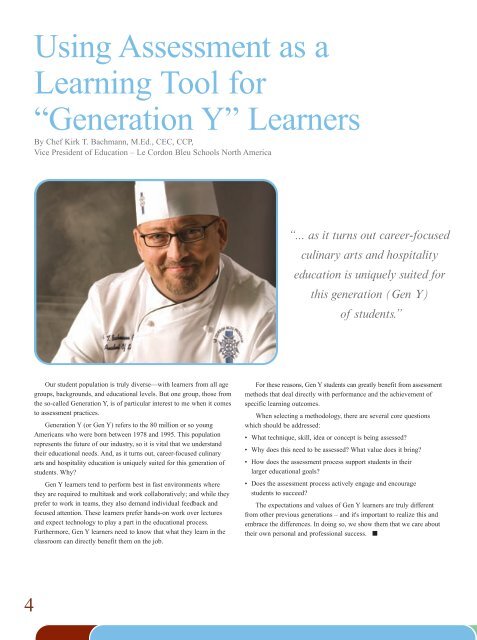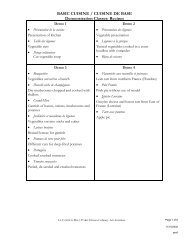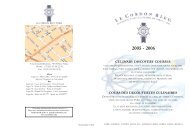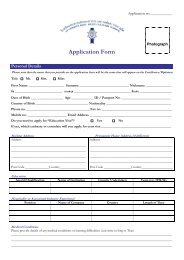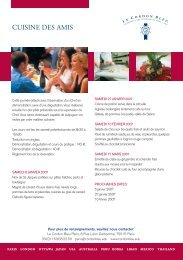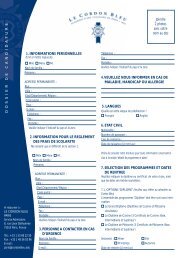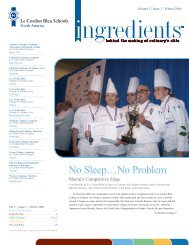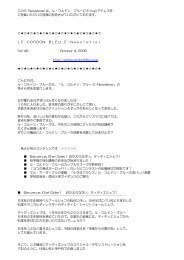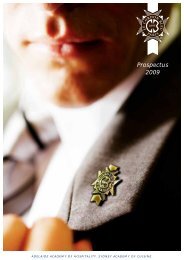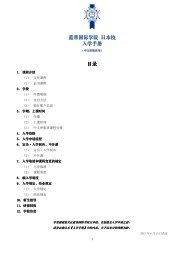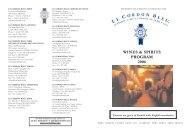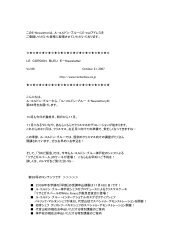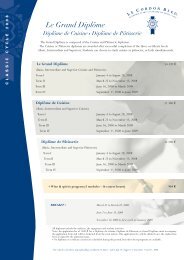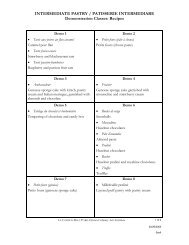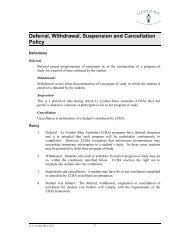OCA “WACS” Global Challenge - Le Cordon Bleu
OCA “WACS” Global Challenge - Le Cordon Bleu
OCA “WACS” Global Challenge - Le Cordon Bleu
You also want an ePaper? Increase the reach of your titles
YUMPU automatically turns print PDFs into web optimized ePapers that Google loves.
Using Assessment as a<br />
<strong>Le</strong>arning Tool for<br />
“Generation Y” <strong>Le</strong>arners<br />
By Chef Kirk T. Bachmann, M.Ed., CEC, CCP,<br />
Vice President of Education – <strong>Le</strong> <strong>Cordon</strong> <strong>Bleu</strong> Schools North America<br />
“... as it turns out career-focused<br />
culinary arts and hospitality<br />
education is uniquely suited for<br />
this generation (Gen Y)<br />
of students.”<br />
Our student population is truly diverse—with learners from all age<br />
groups, backgrounds, and educational levels. But one group, those from<br />
the so-called Generation Y, is of particular interest to me when it comes<br />
to assessment practices.<br />
Generation Y (or Gen Y) refers to the 80 million or so young<br />
Americans who were born between 1978 and 1995. This population<br />
represents the future of our industry, so it is vital that we understand<br />
their educational needs. And, as it turns out, career-focused culinary<br />
arts and hospitality education is uniquely suited for this generation of<br />
students. Why?<br />
Gen Y learners tend to perform best in fast environments where<br />
they are required to multitask and work collaboratively; and while they<br />
prefer to work in teams, they also demand individual feedback and<br />
focused attention. These learners prefer hands-on work over lectures<br />
and expect technology to play a part in the educational process.<br />
Furthermore, Gen Y learners need to know that what they learn in the<br />
classroom can directly benefit them on the job.<br />
For these reasons, Gen Y students can greatly benefit from assessment<br />
methods that deal directly with performance and the achievement of<br />
specific learning outcomes.<br />
When selecting a methodology, there are several core questions<br />
which should be addressed:<br />
• What technique, skill, idea or concept is being assessed?<br />
• Why does this need to be assessed? What value does it bring?<br />
• How does the assessment process support students in their<br />
larger educational goals?<br />
• Does the assessment process actively engage and encourage<br />
students to succeed?<br />
The expectations and values of Gen Y learners are truly different<br />
from other previous generations – and it's important to realize this and<br />
embrace the differences. In doing so, we show them that we care about<br />
their own personal and professional success. ■<br />
4


